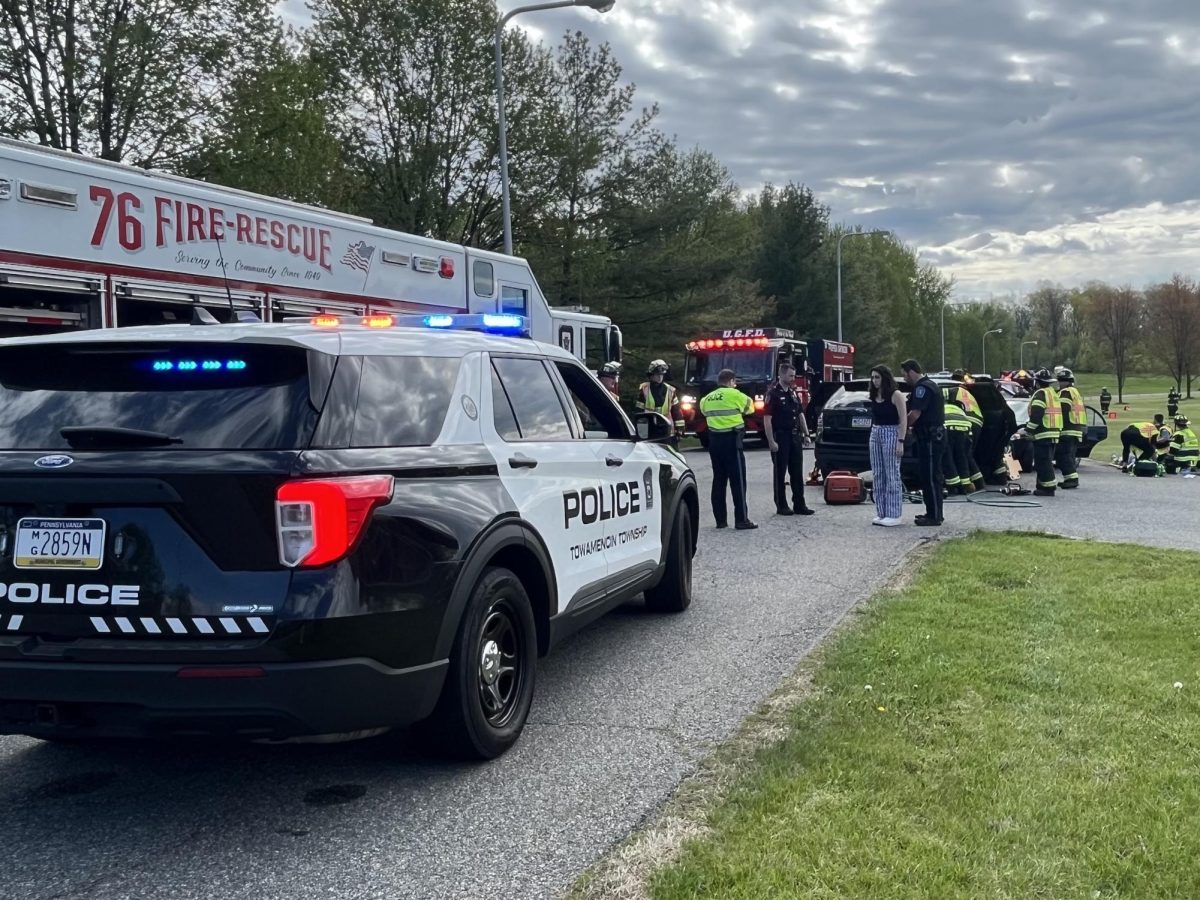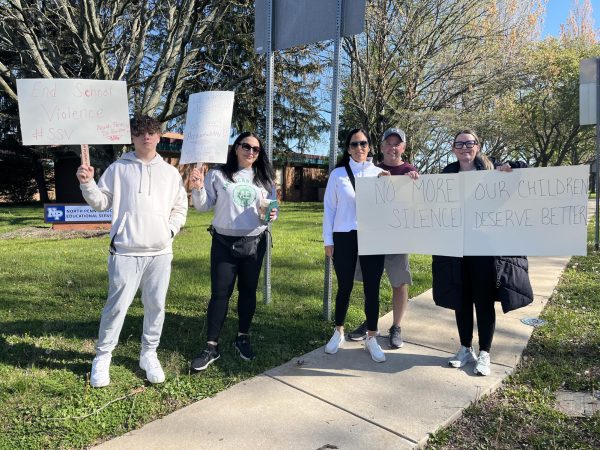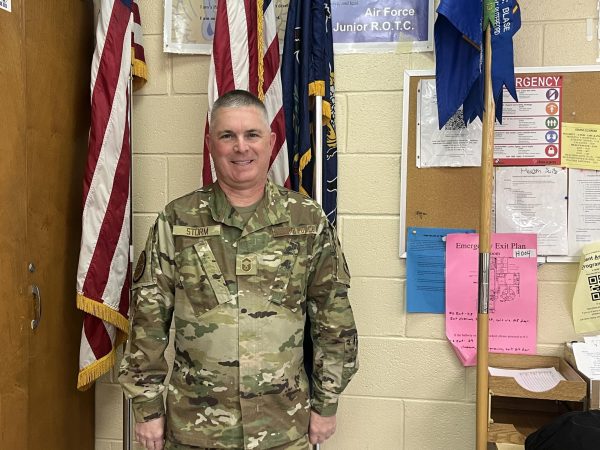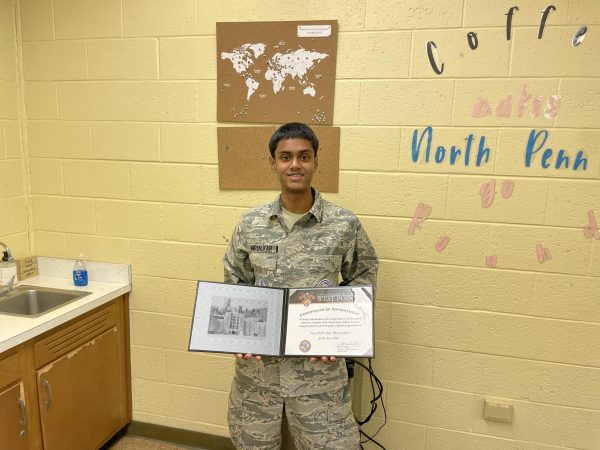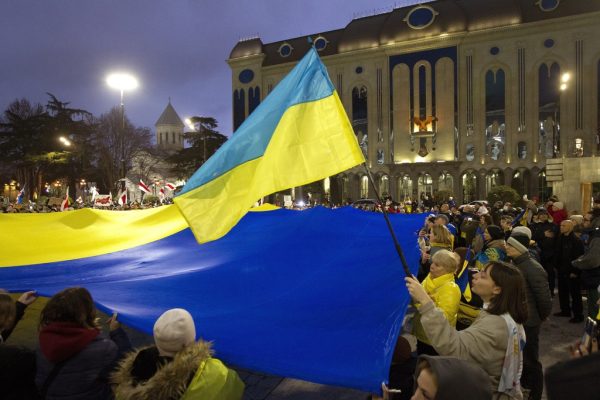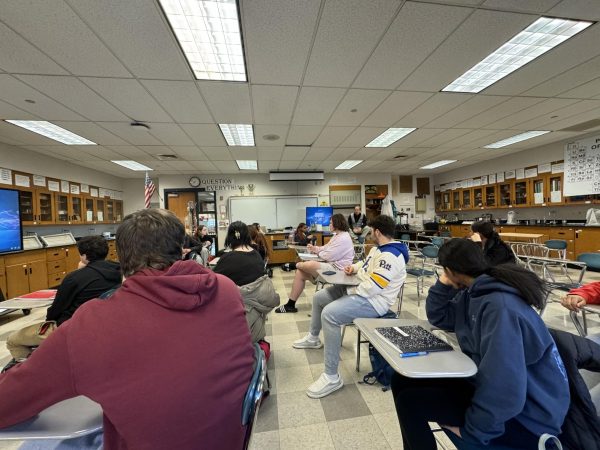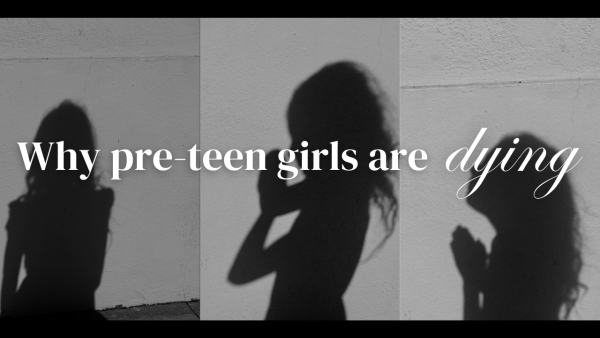EDITORIAL: Is news only news when its in the news?
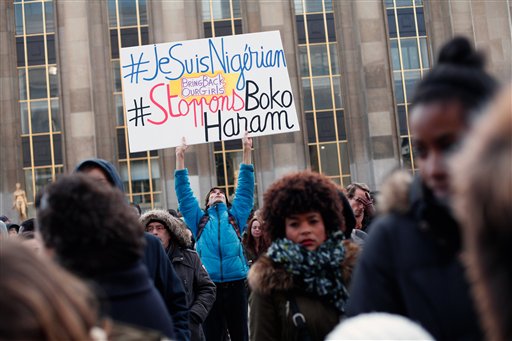
(AP Photo/Thibault Camus)
A man holds a placard reading “I am Nigerian. Stop Boko Haram” during a gathering at the Trocadero place, in Paris, Sunday, Jan. 18, 2015 to protest against extremist Islamic group Boko Haram after a large-scale attack in Baga, where as many as 2,000 people were massacred in a raid on January 7, 2015. Cameroon, Chad and Niger have launched a regional bid to combat the Boko Haram. (AP Photo/Thibault Camus)
January 22, 2015
Once, Ebola was the hottest topic on the news, in the office, in the classroom–everywhere. No matter where you were or with whom you were speaking, the conversation seemed to wander to the topic of the deadly disease in some degree.
More recently, for about two days, local residents were absolutely stunned by the tragic shooting in the seemingly-crime free Montgomery County. People grieved for the six family members shot and murdered by an ex-husband in the family, and wondered how such a thing could happen.
Currently, the words ‘Je suis Charlie’ are being bellowed by people young and old across the world in support of freedom of speech, a debate ignited by the terrorizing shootings of many whom were associated with the satirical magazine Charlie Hebdo in Paris, France.
But what has happened to Ebola? The topic has seemed to disappear just as quickly as it initially surfaced. Once in a while, some will ponder about the disease—is it gone? Is it still a threat? Similarly, the buzz about the Montgomery County murders ceased shortly after the murderer’s suicide. Meanwhile, while everyone has moved on from the situation, seventeen year old Anthony Flick must continue in this real-life nightmare, just like the families of those who have been murdered in Paris. Yet, how much longer will ‘Je suis Charlie’ echo throughout the world?
The rise and fall of the popularity of current events has become a pattern. For some time, that topic, whatever it may be—a shooting, an attack, a disease—will constantly be discussed among peers and coworkers, and will trend on social media. Then, suddenly, the topic becomes nearly extinct.
What is the cause of this strange, mysterious pattern? Could it possibly be that naturally, people are only concerned with the things that impact them directly? While this idea may be selfish, it is a valid argument. Why must people worry about a disease or murder that will never impact them?
Well, there are a lot of reasons that people should be aware of current events, and many indirect ways that a seemingly irrelevant event impacts any individual.
However, serious events that briefly flood casual conversation do not simply disappear from the headlines because some people believe that those things do not apply to them. Obviously, there is some sort of correlation between the buzz about any given current event and the headlines in the news.
But do the headlines result from our conversations, or do our conversations result from the headlines?
For some topics, one could seemingly answer that question either way. One may say that journalists constantly wrote articles about Ebola because people were interested, while someone else may argue that people were interested in the disease because it was headlining the top newspapers and news sites.
In reality, the relationship between the public’s awareness of current events and the media is described the latter scenario, not just for the topic of Ebola, but for the rise and fall of all current events. People become interested in something when media stresses the importance of it, but once the media moves on from the topic, the people move on just as quickly.
Besides, while news media may tend to target topics that seem to interest the public, the public is unaware of any event without the initial broadcasting on televisions, news sites, social media, the radio, and newspapers.
Therefore, the news cannot possibly just write about our interests; our interests are simply based off of anything stated by the news.
There is an egregious flaw in this methodology.
If we truly only speak of events that are stressed by news media, then we are oblivious to anything that is not covered by the news. For example, though countless people chanted “Je suis Charlie” in countless languages after the terrorist attacks in Paris, I have not heard a single word about the brutal massacre in Baga, a town in Northern Nigeria, where hundreds, possibly thousands were murdered by Boko Haram, the same terror group that kidnapped 200 girls last spring. Officials cannot even determine a death toll from the disaster because the town is still too dangerous to enter.
What happened in Paris is terrible, without a doubt, and it absolutely should have been a major headline in news media. However, this only goes to show how much impact the media has on our knowledge of current events, because the horrible massacre in Nigeria has not been mentioned even a fraction as often as that of Paris despite the higher death toll.
So, I must ask the question.
Who determines which events news media must cover, and for how long this event is a major headline? Who decides “that’s enough about Ebola,” or “no, we don’t need to cover that”? Who has the right to say that Americans don’t need to know all about the terror in Nigeria?
We put a huge amount of trust in news media without much thought, but think realistically–without the news, we have little to no awareness of current events, so we cannot help but depend on it. News media is a powerful thing, and to the best of our abilities, we as those who depend on such media must remember what is going on in the world around us even if the media only focuses on events for a minimal amount of time.
Threats reported by the news do not simply cease as soon as the news no longer acknowledges them. Tragedies live on through those who were most affected. We must remember that just because something is no longer–or never was–headlining the leading sources of news media, does not mean that something does no longer–or never even did–exist.


